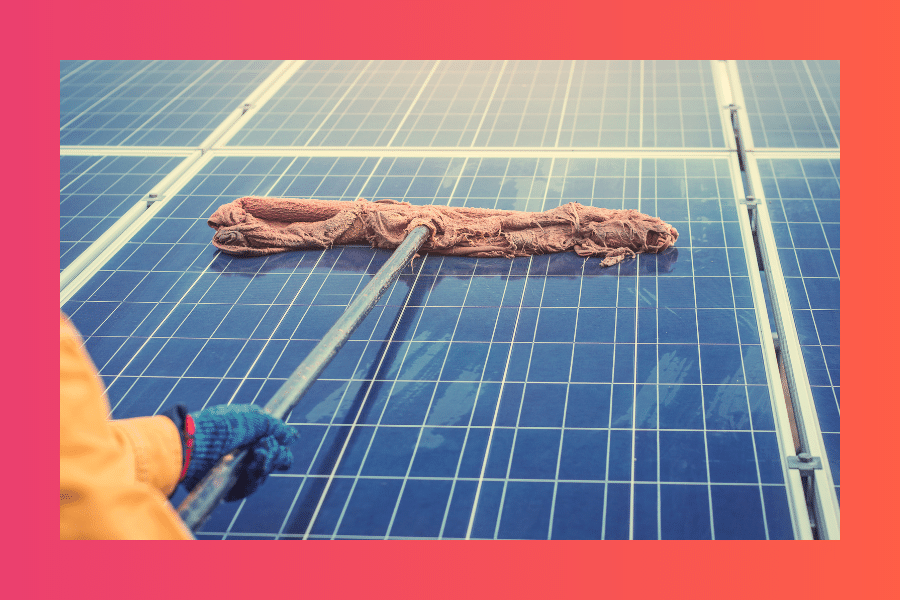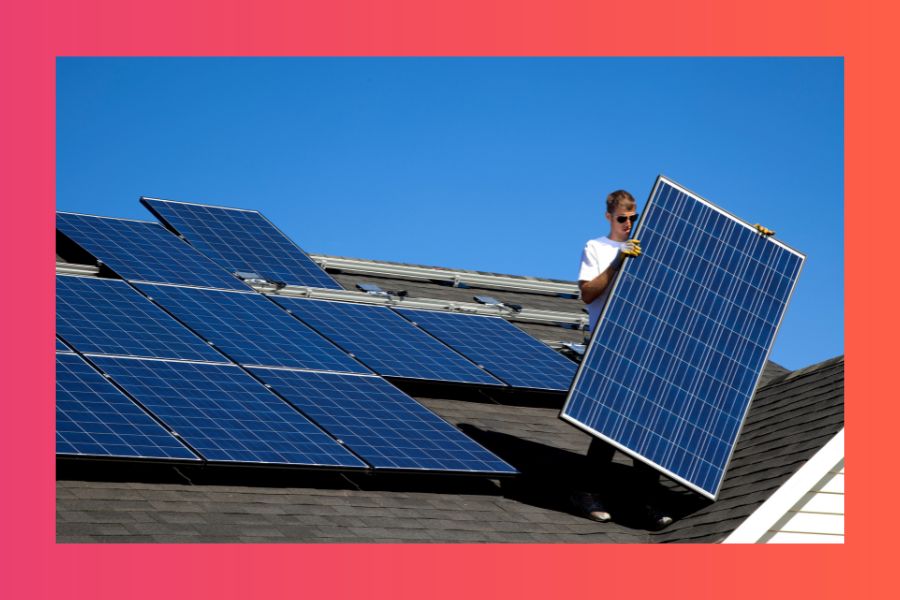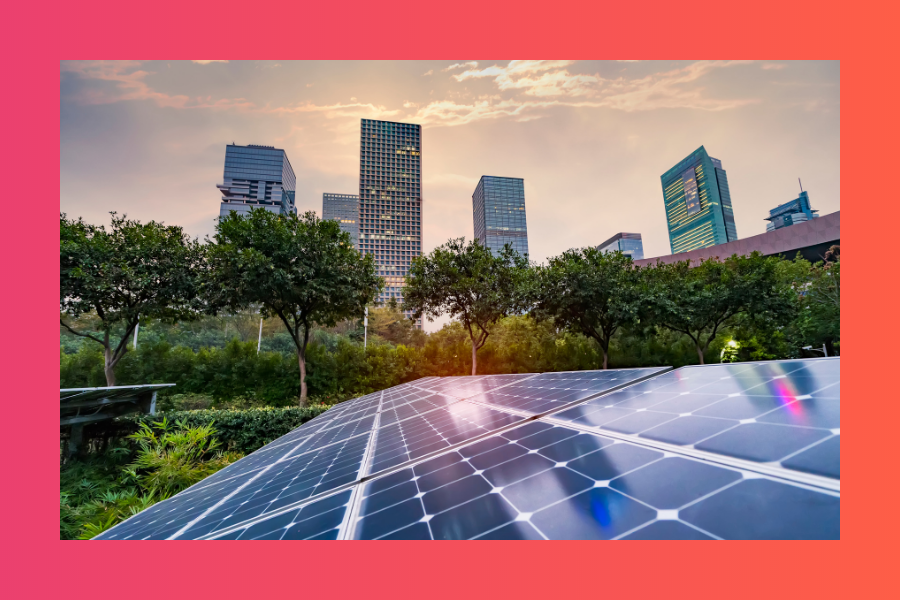Why Do Solar Panels Need to Be Cleaned Anyway?
A rooftop solar system is a lot like any other attractive addition to an Aussie property, such as a deck or a swimming pool. This said, there are a...
6 min read
![]() Solar Trust Centre Team
:
Apr 2, 2022 8:00:00 AM
Solar Trust Centre Team
:
Apr 2, 2022 8:00:00 AM
%20(3).png)
At Solar Trust Centre, we’re always keen to chat about the great aspects of solar panels. There’s certainly no disputing there are indeed many. Yet at the same time, we’re always ready to look at something with clear eyes and recognise - even where the advantages far outweigh the disadvantages - that solar power isn’t perfect. Some folks in the industry may shy away from even considering mentioning that, but we feel the best way to really build understanding and showcase what solar power can do, is to also always be prepared to talk about any challenges surrounding it.
As the following will discuss, solar power is outstanding for having an effectively unlimited energy source, for its capacity to decrease costs, and of course its eco-friendly credentials, among many other factors. At the same time, there are some disadvantages surrounding it, which are important to detail in order to provide a picture of solar power as a whole. So let’s look now at the advantages and disadvantages of solar power.
When it comes to the advantages of solar power the fact is there’s a whole ton of them. Listing them all would be beyond the scope of this article. Nonetheless, the following are 5 key advantages that are unquestionably among the most important when it comes to what makes solar so outstanding:
Solar power is 100% renewable, and a rooftop solar system can continue to draw energy from one day to the next, for many, many years. As a result of this, anyone with a rooftop solar system that continues to function well can expect to see it continue to provide power for a very long time. What’s more, if the solar system is an off-grid one - or it’s what’s known as a “hybrid solar” system, which is grid-connected but will shut off from the grid in the event of a blackout - it’s possible for the system to continue to operate and provide power even in the event of a blackout, or similar issue causing disruption to the power supply of other homes which are grid-connected.
Some countries get very little sunshine every year, Australia as a whole gets a lot. Of course, there are some places that get more than others - our readers in the southern tip of Tasmania will see less average annual sunshine each year than those living along the aptly-named Sunshine Coast - but overall if you’re yet to get solar and thinking about it, the odds are strong your home will be a good candidate for it, based on the amount of average annual sunshine Australia gets across the nation.
A solar power system can help drive down the cost of electricity today. What’s more, it can also provide some defence against any increase in electricity bills going forward. Given a significant rise in the cost of living has been seen across Australia in recent years - and indications are this is set to continue for some time yet - a solar power system can be a terrific tool to make use of, both now and into the future.
Every household that acquires a solar system makes a small but significant contribution to making their community - and the whole world! - cleaner and greener. It’s recognised not everyone who would like to get a solar system is in a position to do so now, and it’s also the case that there’s of course a number of ways in which all of us can help aid the cause of sustainability, and stopping climate change. Nonetheless, for anyone who is keen to be green, there’s no doubt that getting a solar system can be a terrific step in this regard.
For those who maintain an interest in design, there’s no question that adding a solar panel system to the roof is a wonderful way to introduce a new sleek and modern touch to the home. This is the case whether it’s a new home, a relatively new home, or one built a long while back. Even period homes can be given ‘a new lease on life’ with the addition of a rooftop system, which can offer an attractive contrast between the cutting-edge nature of the solar panel system, and the older character of the home.
Just as solar power most certainly has an abundance of advantages, there are also a few drawbacks that it’s good to be mindful of. Some of them are as follows:
There’s no getting around the fact that a solar system can involve a notable upfront cost.
Even more so because - while some questionable solar sellers may offer a bargain-basement price for a system and its install, that ultimately can cost far more money in the long run, and cause a ton of headaches! - a quality solar system installed by a quality installer will always involve a higher cost. Due to this, many people who would like to get a solar system right now may perhaps still be saving up for it. This said, it’s possible to diminish the cost of a solar system by taking advantage of government rebates and loans, and accordingly it’s essential to note that a solar system can indeed pay for itself many times over in the years after its installation.
While acquiring a first solar system can feel like a big commitment, after a while many people can begin to feel it’s ultimately a little like other aspects of their home, in that they look to regularly review it, and try to improve on it. In some instances, adding a battery may be one way of doing this. In other cases, it may be adding (where possible) more panels to the existing system. For some households, adding a whole new system - given the speed of technology’s advancement, and how useful solar can be - is also enticing. So all solar owners should be mindful of ‘upgrade temptation’.
It’s generally not possible to take a solar system along when moving homes. Even if it’s doable from a technical perspective - and this means the system (which could well be a few years old by then) would have to be in conformance with the latest Australian Standards - it’s all-but-guaranteed that it’ll be far better to just arrange for a new system, at a new residence.
This is because of a range of factors like the challenges surrounding the aforementioned Australian Standards, and the greater logistical difficulties of having to arrange for a solar team to dismantle a system at one site, transport it, and then reinstall it at another.
While there are certainly some common advantages and disadvantages when it comes to solar power - as aforementioned, solar systems are eco-friendly, but they’re typically not easy to relocate when moving home - it’s also important to understand the variables that exist surrounding its use. These variables can have a significant impact on the performance of a rooftop solar system from one home to the next.
Even an amazing solar system will start to underperform before long if it's not properly maintained. As a rule, it’s important to get a solar system cleaned once every 6 months in order to maintain its optimal performance (though more frequently may be best in certain conditions).
If a solar system was installed by a reputable business, any shading that existed surrounding the property would have already been factored in. Nonetheless, solar installers can’t see into the future. This means even after the installation has occurred, it’s important to remain mindful of any obstructions surrounding the solar system which could cause shading to occur. An example of this is if the property next door adds another storey to their home, or it's sold and a new home is built. Even obstructions like trees growing beyond a certain height can cause shading issues, so in order to maximise a system’s effectiveness, keeping an eye for obstructions is a must.
Running heavy energy-consuming appliances like the dishwasher and washing machine during the day can be a great way to optimise the use of solar power. For anyone who works from home, arranging this should be pretty easy. For those who are out during the day, it could be worthwhile to consider acquiring appliances with timer functions, so it’s then possible to set them to run during the day if the household will be empty from early in the morning.
Ultimately, a solar power system is already a tremendously useful device here and now in 2022. Yet it’s only set to become even more useful as time marches on. A key illustration of this is seen when it comes to the electric car [EV]. EVs are growing in popularity, and in the years ahead - especially as they become more commonly available, and their prices come down - there’s the expectation the great majority of Australians will eventually come to use one as their daily drive.
Having a rooftop solar system offers an additional power source that can be utilised to charge an EV at home, and if the system is off-grid, it can charge the car exclusively with 100% renewable clean and green power! This is just one reason of many why acquiring a rooftop solar system today can be a terrific move for the future of a household.
As discussed here, solar power has its advantages and disadvantages. It’s important to keep in mind the variables that can exist in terms of performance after installation, which can make a big difference when it comes to maximising the advantages of having a rooftop solar system and minimising the disadvantages. Nonetheless, it’s essential to keep in mind if you’re just beginning the journey to getting a rooftop solar system that the greatest variables of all surround the installation process itself, and the solar components that are installed.
A household with a rooftop solar system installed by a quality solar installer, with quality components, will always have a great advantage over a household that goes with a questionable solar installer, who makes use of questionable parts. That’s why for anyone just starting on their journey to getting a rooftop solar system, taking the time to find the right system, informed by discussions and insight gained from reputable solar professionals, is absolutely critical, and the most important step on the road to getting a great rooftop solar system.

A rooftop solar system is a lot like any other attractive addition to an Aussie property, such as a deck or a swimming pool. This said, there are a...

Solar panels are outstanding, but double-sided (aka bifacial) panels can be even better - at least, when the circumstances are right. This said, just...

The story of solar power’s growth in Australia is truly terrific. Indeed, when considered in its full context - surrounding just how rapid and...